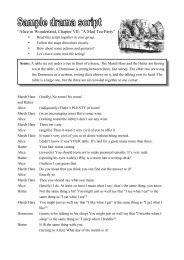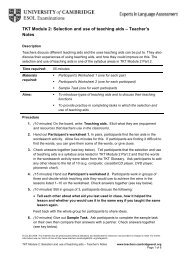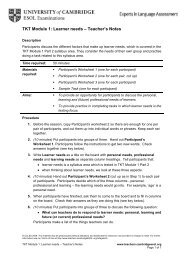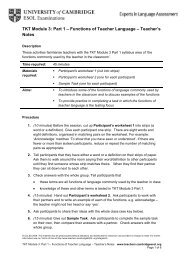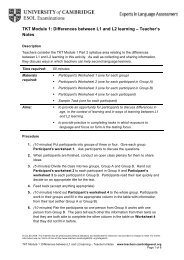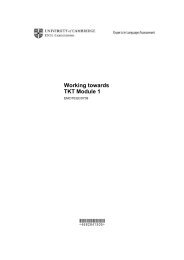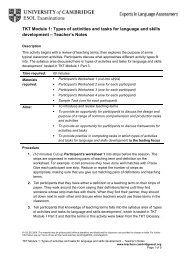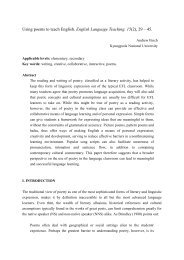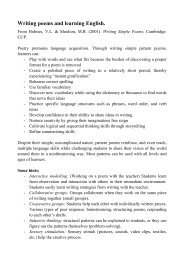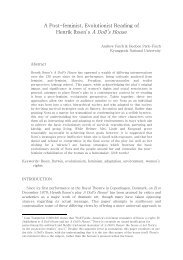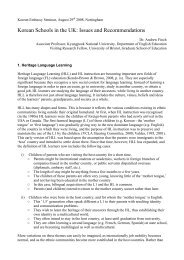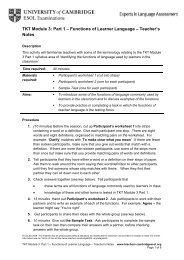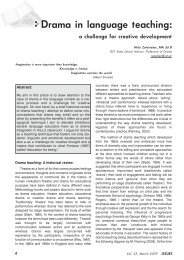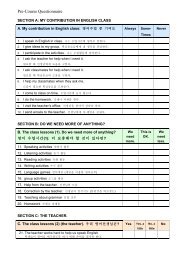Portfolios and Projects: The Understanding Crisis 1 ... - Finchpark
Portfolios and Projects: The Understanding Crisis 1 ... - Finchpark
Portfolios and Projects: The Understanding Crisis 1 ... - Finchpark
You also want an ePaper? Increase the reach of your titles
YUMPU automatically turns print PDFs into web optimized ePapers that Google loves.
user is able to combine them in new <strong>and</strong> appropriate ways to meet the linguisticdem<strong>and</strong>s of the situation in which he wishes to use the language. (Morrow1979:145)Stevick (1976:225) identifies 4 forms of alienation which result from such an approach,<strong>and</strong> which have resulted in the failure in modern language teaching: i) alienation of thelearners from the material; ii) alienation of the learners from themselves; iii) alienation ofthe learners from the class; <strong>and</strong> iv) alienation of the learners from the teacher. <strong>The</strong>sealienations are indicative of an impersonal education system which valued intellect (asdefined by that system) over emotion, <strong>and</strong> behavioristic learning over moral responsibility– characteristics that were justified by policy-makers eager for literate factory workers tofuel a growing industrial base for their economy, but which are no longer justifiable in anera of rapidly changing technology, communications <strong>and</strong> employment. Changes whichoccurred in the twentieth century in terms of social sciences, psychology, philosophy, <strong>and</strong>political science, attest to a society in which learning <strong>and</strong> underst<strong>and</strong>ing metaskills(problem-solving, critical thinking, etc.) are more important than knowledge, <strong>and</strong> in whichvarious kinds of social awareness (minority rights, the status of women, rights of patients)have helped to make "quality of life" the new marker of social progress Holec (1980:1):From the idea of man ‘product of his society', one moves to the idea of man‘producer of his society'. (Janne ND[2], cited in Holec 1980:2)In second language learning, this humanistic trend (i.e. towards improving the quality oflife of the learner) has driven a general educational concern to help students become moreindependent in how they think, learn <strong>and</strong> behave (cf. Boud 1988; Hammond & Collins1991), with knowledge being constructed by individuals rather than transmitted from oneperson to another, <strong>and</strong> with learning occurring "within specific contexts, mainly as a resultof social interactions" (Williams & Burden, 1997:46). In such an approach, a number ofunderlying themes concerning human nature <strong>and</strong> human learning emerge:1. high-level health <strong>and</strong> well-being2. the whole person3. the human motivation towards self-realization4. change <strong>and</strong> development5. education as a life-long process6. respect for an individual's subjective experience7. self-empowerment. (Underhill: 1989:251)



